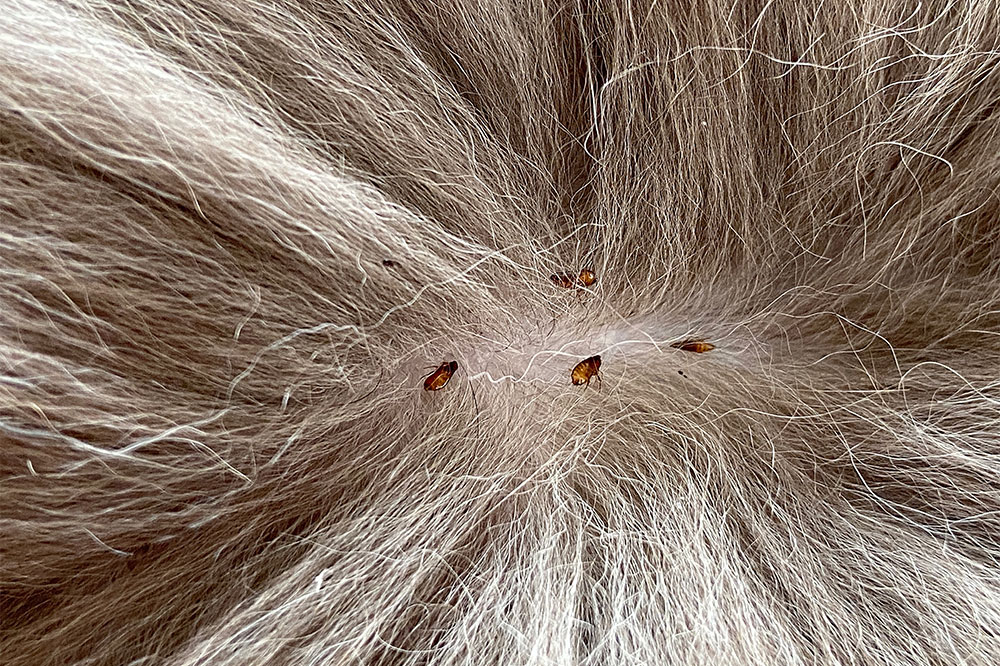Home remedies for protecting dogs from fleas and ticks

With summertime just a few weeks away, the warm weather will invariably bring with it the flea menace. As everyone ruses outdoors and the flea season kicks in, these pests can be a source of much discomfort for our four-legged companions. While you can buy deterrents and repellents from the pet store, quite a few everyday kitchen ingredients are effective natural remedies for fleas and ticks.
Natural oils
Essential oils are quite effective in eliminating fleas; they are diluted and used to make shampoos and sprays for dogs infected by fleas and ticks. These oils need to be applied with caution because the scent is extremely pungent and indiscriminate use even can cause to harm your dog. The idea is to apply the oils like peppermint, lavender, cedar oil, or lemongrass onto a well-ventilated surface of their body, but not near their face. You can dilute these natural oils in a carrier like almond or olive oil.
Garlic
Freshly crushed garlic may be added to your dog’s food to protect him from fleas. Depending on how big your dog is, you can use a couple of cloves to get the desired result. But you should not use more than half a clove if their body weight is less than 20 pounds. For dogs suffering from hemolytic anemia, garlic must not be given.
Vinegar
You will readily find this ingredient in every kitchen. Vinegar is an excellent home remedy for removing fleas and ticks in pets. You can mix this condiment with your pet’s drinking water or even use this solution to spray on their coat. When you think that fleas can come inside your home, you can always spray undiluted vinegar near the door frames to make sure they stay outside.
Supplements
Supplements like nematodes are often used in the garden for killing flea larvae and food-grade diatomaceous earth. This naturally available soft and siliceous sedimentary rock can be easily broken down into a powder. However, the application must be done carefully so that your dog does not inhale the dust.
Rosemary
This natural remedy is effective for treating light flea infestations. You can prepare a herbal flea powder using rosemary, wormwood, fennel, rue, and peppermint. This mixture may be sprinkled on carpets, pets’ bedding, furniture, and window sills to repel and prevent fleas at home.
Baking soda
Both salt a well as baking soda work as dehydrating agents and get rid of fleas equally well. Besides, you will get baking soda anywhere, making it a convenient and affordable solution. You can mix salt and baking soda into a spice bottle and shake this well. You can sprinkle this mix on all the infected areas and let it stay like that for about two days, after which you must vacuum these areas thoroughly.
Apart from the home remedies, you may try medications from BRAVECTO that work just as well. The vet-prescribed medication lasts three times longer as compared to other monthly treatments.
BRAVECTO (FLURALANER) chews: The mediation available as BRAVECTO (FLURALANER Chews) is chewable that must be given as a single dose to the dog with their food.
BRAVECTO (FLURALANER) topical solution: The solution is another popular treatment and a single dose must be applied directly to the dog’s skin between the shoulder blades.
Apoquel: Apoquel chews are prescribed by vets to millions of pet parents whose dogs deal with itchy and scratchy skin. It starts showing results within the first four hours of administration and has the capacity to suppress allergic reactions in about 24 hours. The dog anti-scratching, anti-itch chews by Apoquel can be administered to dogs that are either 12 months or older. These chews have to be taken orally, two times a day. Apoquel is safe to use and has no serious infection rate.
Advantix II: This topical medication starts working within two hours of application. Advantix II kills fleas, ticks, lice, mosquitoes, stable flies, and flea eggs. You have to let the medication air dry on your dog’s skin instead of rubbing it into their coat or skin. Repeat the procedure once a month, and look out for allergic reactions, lesions, or rashes on your pet to ensure that Advantix II does not harm your dog and suits them.